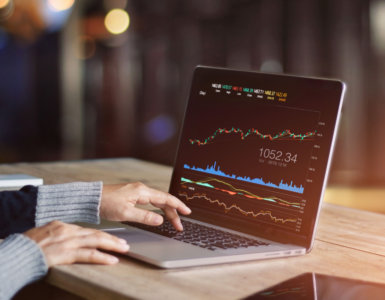CFD is a popular derivative product that gives traders an opportunity to speculate prices of indices, stocks, commodities, and currencies. In CFD trading, an investor never owns the underlying asset; they just bet on where the price will go.
With high leverage and a wide variety of financial markets, CFD trading for novices is complex. Fortunately, you’ve found the best CFD trading tutorial for beginners.
Beginners Guide For New CFD Traders
Do not expect this CFD trading advice to make you a billionaire overnight. But think through the following tips as they are worth remembering if you wish to avoid typical CFD trading mistakes and get the most out of the experience. The following tips are very helpful for beginners to get started with contracts for different trading:
1. Try A Sample Account First
A demi account option is available for novice traders as it allows them to test the waters. There are several online brokers that offer a demo account. If you create a demo account, fund it with money, you’d be prepared to trade within real life. In this manner, you’ll get more realistic results. Have you put up $1,000 for CFD trading? Put this in your sample account and start “trading” to see how it goes.
2. Do Your Homework
Make sure you know your stuff, both in terms of CFD trading fundamentals and your trading portfolio. Don’t trade without understanding limit and market orders; you may learn more about both order types in this article. Don’t trade forex CFDs unless you know the difference between USD/GBP and GBP/USD. Also, don’t expect to master all asset classes or all markets. Focusing on one (or two) niches is ideal.
3. Limit Hedging
You may utilize leverage, but keep in mind that the price will not always move in the right direction after you start a trade. With ample leverage, a tiny move (say, 0.1%) in the wrong direction may compel you to close the trade, preventing you from profiting if the price rebounds back and moves in the “right” direction. Although 400:1 leverage is not unheard of, authorities in the EU have set a 30:1 ceiling for key currency pairings. That leads to the following point.

4. The Ideal Trading Positions
Some brokers don’t let you manually reduce leverage. In these situations, you may wish to reduce your trade size. In any event, be mindful of your outstanding risk exposure.
5. Own Your Assignment
Suppose someone brags about their Bitcoin trading profits. That doesn’t mean you should rush in and start trading Bitcoins, as your life depends on it. First, study research papers, publications, and conduct your own fundamental, technical, or both analyses.
6. Create A Trading Plan
Prepare a plan for each transaction before you start. Consider where to close your trade in both best- and worst-case situations. Consider several outcomes for your investment. What happens if the underlying price rises 5%? What if it drops 5%? 10%? 50%? Consider how much loss you can bear, or how much profit you’d accept, on that specific position.
7. Cut Your Losers
Now comes the hard part. If things go wrong, don’t chase your losses, and stick to your original plan. Get emotional and try to “recover” what you’ve lost. Don’t. Make rules and follow them. Consider setting your stop-loss 10% below the buy price. Don’t stray from this strategy because you’re a huge admirer of the stock and believe it will ultimately perform well.
8. Leverage Is Mutual
We can’t emphasize enough how dangerous leverage may be. You may invest more than you have using Leverage. This is a great function, but it needs caution. Leverage increases both profits and losses. Are you willing to lose your whole account? If not, be cautious with your leverage ratio (if you have any) and your trading position size.
9. Be Ready For Rain
Always maintain adequate equity/cash in your account in case you need to put up extra margin. If you don’t have enough margins, some brokers may liquidate part of your holdings. Ensure that this does not occur at the most inconvenient of times.
10. Pick An Honest CFD Broker
A competent CFD broker may significantly improve your trading performance. For starters, costs are vital. Trading costs may eat into your earnings if you trade often. The spread is the cost between the bids and asks prices in CFD trading. Find a broker that sets spreads that don’t eat away all your trading profits. It offers safety and helps to avoid fraud at all costs.
Conclusion
CFD is a well-known financial derivative that gives traders an opportunity to trade on several financial instruments and predict future prices without owning the asset.












